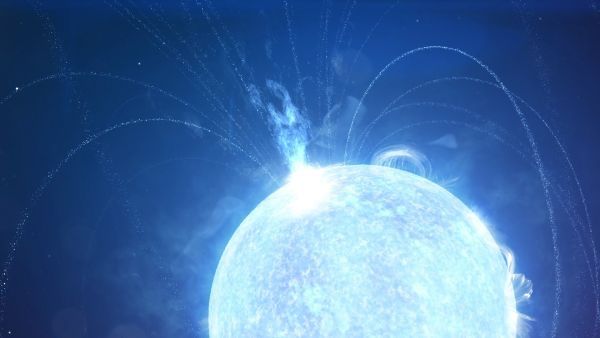Scientists discover 'glitched' neutron star that obliterated an asteroid, then fired off a brilliant
By Robert Lea published 1 day ago
The powerful magnetic star blasted out a fast radio burst and changed its rotational speed as it ripped apart the space rock.

illustration of a star with bursts of material arcing at the top. the entire image is tinged in blue
A falre bursts from a power magnetic neutron star similar to the burst caused when such a magnetar destroyed an asteroid (Image credit: NASA Goddard Space Flight Center/Chris Smith (USRA))
A rapidly spinning neutron star with an incredibly powerful magnetic field "glitched" when it destroyed a space rock, a new study suggests.
The neutron star SGR 1935+2154, which is located an estimated 30,000 light-years away near the center of the Milky Way, appeared to "glitch" by very briefly changing its rational speed after an asteroid was pulled in by its gravity and ripped apart. The glitch consisted of the star changing its rotational speed while also releasing a fast radio burst (FRB), a powerful blast of radio waves.
In a new study of the "glitched" star, astronomers can finally connect these mysterious bursts of radio energy to these extreme star corpses known as magnetars.
Like all neutron stars, magnetars are born when a massive star runs out of fuel for nuclear fusion — a process that creates the outward energy needed to stop a star from collapsing under its own gravity.
More:
https://www.space.com/magnetic-star-asteroid-glitch-fast-radio-burst
